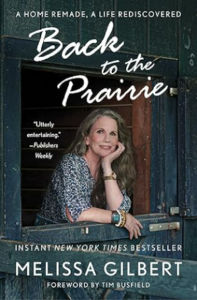
Chapter 1: Introduction to Back to the Prairie
- Start Time: 00:00:07
- End Time: 00:01:03
- Summary: The speaker introduces Melissa Gilbert’s memoir, “Back to the Prairie,” highlighting the connection between her life and the iconic shows “Little House on the Prairie” and “30 Something.” The speaker expresses a preference for this memoir over Gilbert’s previous work, noting that it covers her life from the last book to the present.
Chapter 2: Structure and Themes
- Start Time: 00:01:03
- End Time: 00:02:09
- Summary: Gilbert’s memoir is divided into three parts, but the speaker finds the first part scattered and difficult to follow. The discussion touches on the lack of a clear theme and the political undertones that emerged in the narrative, which the speaker found disappointing.
Chapter 3: Personal Reflections and Relationships
- Start Time: 00:02:09
- End Time: 00:03:49
- Summary: The speaker reflects on Gilbert’s relationships, particularly with Timothy Busfield, and expresses a desire for more depth in these personal stories. The discussion includes anecdotes about their life together and the challenges they faced.
Chapter 4: The Cabbage and Simplicity
- Start Time: 00:03:49
- End Time: 00:05:07
- Summary: The chapter focuses on Gilbert’s new home, referred to as “The Cabbage,” and the process of downsizing. The speaker appreciates the humor in Gilbert’s writing and her descriptions of the animals around their home, emphasizing the theme of simplicity.
Chapter 5: Political Commentary and COVID-19
- Start Time: 00:05:07
- End Time: 00:08:03
- Summary: The discussion shifts to the political aspects of the memoir, which the speaker finds unnecessary and distracting. The speaker also shares personal experiences related to the COVID-19 pandemic, reflecting on how it impacted their lives and the narrative.
Chapter 6: Final Thoughts and Recommendations
- Start Time: 00:08:03
- End Time: 00:11:44
- Summary: The speaker concludes with reflections on the memoir’s potential and its connection to “Little House on the Prairie.” While acknowledging its flaws, the speaker still finds value in the book and suggests it as a gift, albeit with caution due to its political content.
